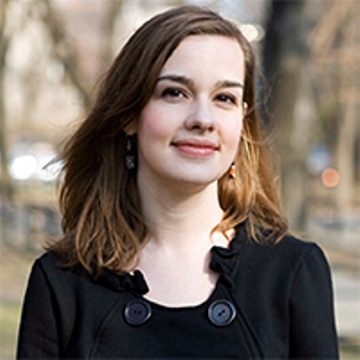- Calls to this hotline are currently being directed to Within Health, Fay or Eating Disorder Solutions
- Representatives are standing by 24/7 to help answer your questions
- All calls are confidential and HIPAA compliant
- There is no obligation or cost to call
- Eating Disorder Hope does not receive any commissions or fees dependent upon which provider you select
- Additional treatment providers are located on our directory or samhsa.gov
Eating Disorders are Color Blind: Listening, Correcting Imbalances, and Offering Hope – Part II

This is Part 3 of this 5-part series where Chief Executive Officer of the National Eating Disorders Association (NEDA), Claire Mysko, MA is speaking with Dr. Mazella Fuller and Karla Mosley on their individual experiences as African-American women in the eating disorder community and about how to fill gaps in advocacy & research in diverse populations and eating disorders..
Claire: Thinking about the eating disorders field and research, there is a lot more that we need to know about eating disorders generally. Even more, there are major gaps in the research when it comes to looking at how eating disorders affect underserved populations.
Dr. Fuller, can you speak to where you see gaps in this research and what you believe we need to be learning and doing to advance in the field to expand our understanding of eating disorders?
Dr. Fuller: I think, first of all, what we are doing today in focusing on awareness. We have to develop platforms that people like myself, Karla, and others invested have the opportunity to start talking about this and connecting with researchers.
When we consider research on eating disorders and black women, there is a lot of research and resources on white women, and there is still some on black women, really, there is a dearth of it, but, what it comes down to is, are black women advocating for this and knowledgeable in this linked to establishments?
Are we connected to establishments such as Duke University or NEDA or BEDA, any of those places where we can collaborate and join together in unity and do this work? Again, I put the charge out that we have all we need, but, the question is – why aren’t we doing it?
I have been in this area since 1997 and have seen how cohorts and people come together and write books, generate resources, develop conferences, and how people are invited and speak. The bottom line is, people are chosen that they know and are familiar with.
Because I am at Duke and, therefore, pretty visible, I feel blessed and grateful for my white colleagues that have been accountable and have asked me to talk or contribute. We have to build upon that and do more of that, welcoming the people who do know into the space.
Claire: Yes, I came into the eating disorders field around the same time. I started working for the American Anorexia Bulimia Association in 1996.
It was around then that I was being invited to speak to schools with diverse students about these eating disorders, but the materials and research we had to use didn’t match up with what they needed to hear and learn.
I think we have made progress, but, we still have a ways to go and need more people at leadership seats to take this seriously and know that, even though we’ve made progress, we have a lot more work to do to hold one another accountable.
Karla, I’d love to hear your perspective on, too, on both the research component as well as the awareness piece. How do we take some steps forward as far as mainstream media coverage and NEDA campaigns, which you’ve helped with, to create this space?
Karla: I think it is all about expanding. The more healing and conversation we have about this topic, the more possibility that people will recover and the more likely it is to hit at all different levels.
For example, on my level, being in front of the camera, because of conversations like this and my own recovery, I can say “no, I’m not going to do that” on set or, “you know, how about we shift the script this way” or “what if I say this?”
There have been moments where I have received a script, and they suggested that my character talk about herself in a certain way that I felt was really disempowering. My character on the show is a model, and I make sure to show her eating food, for example, small things like that that don’t have to be loud but are subtle cues that “this is a human who models and looks as she does but also eats food.”
 I also make very certain that my character doesn’t speak about themselves in a degrading way. Likewise, the people that are in the writer’s room then gain awareness from those small moves.
I also make very certain that my character doesn’t speak about themselves in a degrading way. Likewise, the people that are in the writer’s room then gain awareness from those small moves.
The more people that we can get involved in this conversation, especially in advertising and media because these images are what people can be so hypnotized by and are the standards of being that they encounter day-in and day-out.
The responsibility to change our way of thinking around body image as a society should not solely rest on the people who are affected by it.
Making everyone aware can help that so that fathers can watch how they speak about these things to their daughters or those in the entertainment industry can reframe the portrayal of human beings and human bodies.
Please See:
Eating Disorders are Color Blind: Listening, Correcting Imbalances, and Offering Hope – Part 1
Eating Disorders are Color Blind: Listening, Correcting Imbalances, and Offering Hope – Part 3
Source:
Virtual Presentation by Claire Mysko, MA, Karla Mosley, and Dr. Mazella Fuller in the December 8, 2018, Eating Disorder Hope Virtual Conference III: Blasting Through Bias: A Deep Dive into Underserved Populations and Global Issues 2018
Please visit the Virtual Conference page for other presentations.
Authors:

Claire Mysko, MA is the Chief Executive Officer of the National Eating Disorders Association (NEDA) and an internationally recognized expert on eating disorders, body image, and media literacy. She is the author of Does This Pregnancy Make Me Look Fat? The Essential Guide to Loving Your Body Before and After Baby (2009) and You’re Amazing! A No-Pressure Guide to Being Your Best Self (2008) an award-winning self-esteem manual for girls.
Mysko previously served as NEDA’s Chief Operating Officer, Director of Programs, and as a consultant on Proud2Bme and Proud2BMe On Campus, NEDA’s youth platforms. Prior to joining NEDA, she served as the director of the American Anorexia Bulimia Association and spearheaded the development of pioneering online communities at Girls Inc. and SmartGirl.
During her tenure at NEDA, Mysko has overseen a rapid expansion in both reach and programs, including the implementation of an evidence-based eating disorders prevention program in New York City schools, initiatives to bust prevailing myths about eating disorders, and the cultivation of key relationships with companies including Aerie, Crisis Text Line, Facebook, Instagram, and Pinterest. Learn More About Claire Mysko
Karla Mosley – Bio not provided
Dr. Mazella Fuller – Bio not provided
 About the Transcript Editor: Margot Rittenhouse, MS, NCC, PLPC is a therapist who is passionate about providing mental health support to all in need and has worked with clients with substance abuse issues, eating disorders, domestic violence victims, and offenders, and severely mentally ill youth.
About the Transcript Editor: Margot Rittenhouse, MS, NCC, PLPC is a therapist who is passionate about providing mental health support to all in need and has worked with clients with substance abuse issues, eating disorders, domestic violence victims, and offenders, and severely mentally ill youth.
As a freelance writer for Eating Disorder and Addiction Hope and a mentor with MentorConnect, Margot is a passionate eating disorder advocate, committed to de-stigmatizing these illnesses while showing support for those struggling through mentoring, writing, and volunteering. Margot has a Master’s of Science in Clinical Mental Health Counseling from Johns Hopkins University.
The opinions and views of our guest contributors are shared to provide a broad perspective of eating disorders. These are not necessarily the views of Eating Disorder Hope, but an effort to offer a discussion of various issues by different concerned individuals.
We at Eating Disorder Hope understand that eating disorders result from a combination of environmental and genetic factors. If you or a loved one are suffering from an eating disorder, please know that there is hope for you, and seek immediate professional help.
Published on March 13, 2019.
Reviewed & Approved on March 13, 2019, by Jacquelyn Ekern MS, LPC
Published on EatingDisorderHope.com

The EatingDisorderHope.com editorial team comprises experienced writers, editors, and medical reviewers specializing in eating disorders, treatment, and mental and behavioral health.

